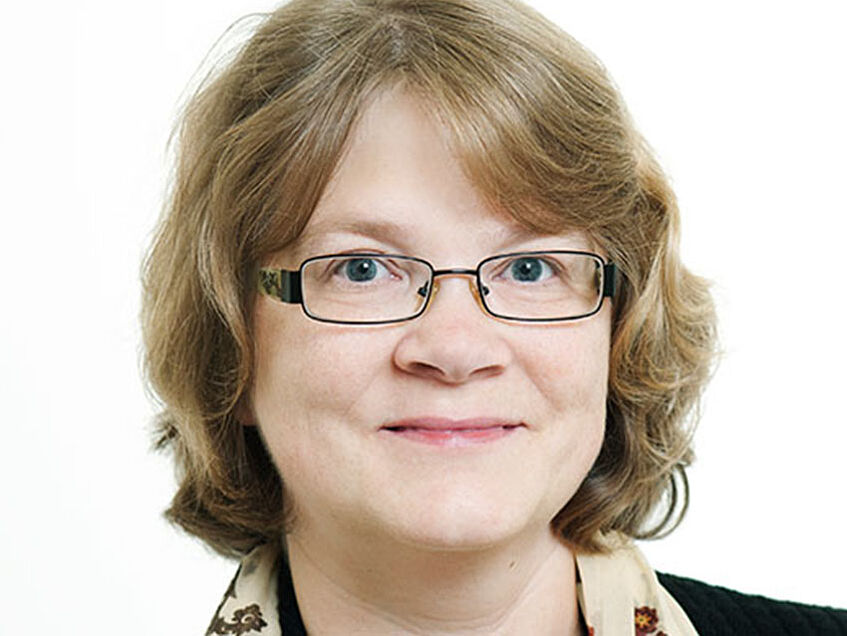Univ.-Prof. Dr.in Kirsten Rüther, M.A.

Univ.-Prof. Dr.in Kirsten Rüther, M.A.
Institut für Afrikawissenschaften
E-Mail: kirsten.ruether@univie.ac.at
Profil
Kirsten Rüther vertritt als Historikerin das umfangreiche Feld der „Geschichte und Gesellschaften Afrikas“. Im Verlauf unterschiedlicher Beschäftigungsstationen in Hannover, Hamburg, Essen, Berlin und Zürich hat sich ihre Expertise aus verschiedenen, sukzessive erschlossenen Arbeitsschwerpunkten gespeist. Hierzu gehörte zunächst die Auseinandersetzung mit politischen und alltagsgeschichtlichen Relevanzen von Christianisierung im Kontext von Mission und Kolonialismus. Später befasste sie sich mit dem Umbruchprozess in Südafrika, speziell wie er in den Aktivitäten von Heilern, dem Wissen um Medizinen und bei der Bewältigung vielfältiger „afflictions“ zum Tragen kam. Jüngst konzentriert sie sich auf Stadtforschung in Sambia und interessiert sich insbesondere für Wohnbaupolitiken des spätkolonialen Staates. Alle diese Arbeitsschwerpunkte lassen sich mit der Mobilitätsforschung verbinden, wie sie im Rahmen der Forschungsplattform und der doc.funds betrieben wird.
Forschungsinteressen
- Wohnraumpolitik und Beschäftigung im spätkolonialen und früh unabhängigen städtischen Sambia
- Biography und Familienforschung
- Christianisierung und Kolonialismus
- Gesundheitssuche und Populärkultur in Südafrika
- Globalgeschichte, Verflechtungsgeschichte, Mobilitätsforschung
Laufende Forschungsarbeiten
Zurzeit befasse ich mich mit zwei Forschungsarbeiten, die sich der Mobilitätsforschung zuordnen lassen:
- The Politics of Housing in Late Colonial and Early Independent Kenya, Zambia and DR Congo
- The Burial of Dennis the Goat - Revisiting the Years of the South African Transition
The Politics of Housing in Late Colonial and Early Independent Keya, Zambia and DR Congo
This research was started with funding from the Austrian Science Funds (FWF). In three case studies, between 2017 and 2021, a group of researchers committed themselves to the study of housing as provided in the context of employment.
Parallel to a doctoral fellow writing on “Building Ideology” in Livingstone, I am currently devoting time to coming up with a history of the provision of housing in late colonial Zambia and ideas of social advance among an emerging urban strata of aspiring citizens. The book will focus on issues of rent-paying, the meaning of house numbers and addresses as well as on representations of houses and homes in Zambian life-writing. I am also pursuing a focus on the cultural, political and architectural meanings of roofs, which are mentioned excessively in the archival record.
The Burial of Dennis the Goat - Revisiting the Years of the South African Transition
In 1992 a goat called Dennis was murdered in the streets of Umlazi. Dennis had the reputation of being like a human being, and his owner, Xolani Sabelo, was determined to give him a human burial. This proved difficult as the Umlazi authorities were reluctant to assign space from their cemetery for Dennis’ grave. Xolani then went from pillar to post to find a place for his beloved friend and companion. A variety of print media and radio stations keenly covered the story, and in many ways the story of the death and burial of Dennis the Goat was a story of African journalism re-emerging from apartheid pressures.
The story unfolded in a fragile moment of South African history, namely virtually between the ending of apartheid and the beginning of “new times”. Everything was in flux. There was a high level of violence sweeping through the country. There were many expectations towards a better future. The “output” will be an extended essay offering various possibilities of reading the story and of engaging with pertinent questions of how “being human” differs from “being an animal”, and of the hampered path along which dead bodies (and souls?) move from the sphere of life to an afterlife.
